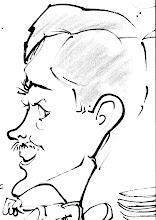My name is Neta-wata-wes, which in Leni Lenape means Skilled Advisor. Most of my friends call me Netta. I will tell you a story about falling leaves and branches.
In the color of a tart gourd the leaves of oaks talk to the sky, smiling and bitter. Bright enough to be as yellow as a deer fat candle at sundown the hands of the tree still regret their end to a summer of water, humidity, warmth. Woodpeckers took their pets, the larvae of the bark, this summer season. Still there was green in the tree's hands like a "how" to a friend you see once a year, near the water, canoe coming towards you like a pointing finger that says here is your gift of friendship share it, for now, because things change. And now they do change. My visiting summer buddy canoes back to the knolls in the fall and we smile and cry all in the same color of the face.
Like terra cotta or a blushing daughter, the maple leaves also weep their passing. But they shout louder in tone than a sassafras tree's music of colors. The maple are not angry. They celebrate the last few moons of the festival, crimson sky on the rim of the horizon as the sun sleeps, urgent fire ants running on errands down the bark just like falling leaves from these trees!
Falling. It seems things return to their roots when there is less day. The leaves come to their brother soil when the air is cool, earth holding heat like a rock near the campfire the next morning. This is why even branches march from the shoulders of trunks, why they lie near their mother, like the cheek of the baby on the breast. As well, it is that they cheer for what they have had, many summers. They leave you with a memory, a souvenir, of their part in your life. A souvenir even if you did not know you looked at the downed branch.
Here’s when the branch could have been with you.
When you counted stars, that dark charcoal line you traced in your eye to find the North Star was the now fallen branch!
When the robin pardoned your sin of trying to catch it by moving up one branch!
When you needed to take a breath, rushing home to sing your part near the fire, the branch carried the leaves that put air in your mouth!
So this is the reason for all the falling in the fall. What's more, there is your reaction to fallen sticks. The time and placement of the falling leaves and branches is as scheduled as autumn.
Hear this: You run through the woods. A friend tries to find you. She is darting in the shrubs like a chipmunk. You squat beneath the berries, hear her feet crushing moss like a pillow against your ear. So you leap and traipse through the opening. Choose your options. Then dart to the path. There, where the run is coming to you easier, you see ground rise to your eyes like fast baking bread. It is you that has collapsed, tongue licking a bowl of dirt, grass in your nose like a backwards sneeze.
Why all these things? At your stubbed big toe is a branch! How could you not have seen it? Well, it fell to remind you of its glorious part in your life, on the tree. Insignificant as dust it wants to tell you it has been a part of you. So it drops you its memo.
Well my summer friend canoed away the same day; the annoying autumn wind against her, not stopping her. I was tired just watching the forearms lift and drop the paddle, her body shrinking like the pebble you tossed from a moccasin.
That night I sat on our log near the fire feeling my friend's summer voice beneath me. But it was a beetle, thinking of her. So I rose, to scrape my pants free of the insect and walk a bit. I slipped. The beetle, running at such angles, seemed to be having fun watching me fall. And there, like a mat at the tent entrance, was a collection of autumn leaves I slipped on: maple, oak, spruce and chestnut. My friend had collected them earlier. Perhaps she placed them there as a souvenir, like the falling branches, so I would remember her part in my summer life and carry her in my thoughts through the winter, a white opal like frozen bubbles on the chest of mother earth.
Copyright 2011 by Christopher Parker
Saturday, April 9, 2011
Subscribe to:
Posts (Atom)
